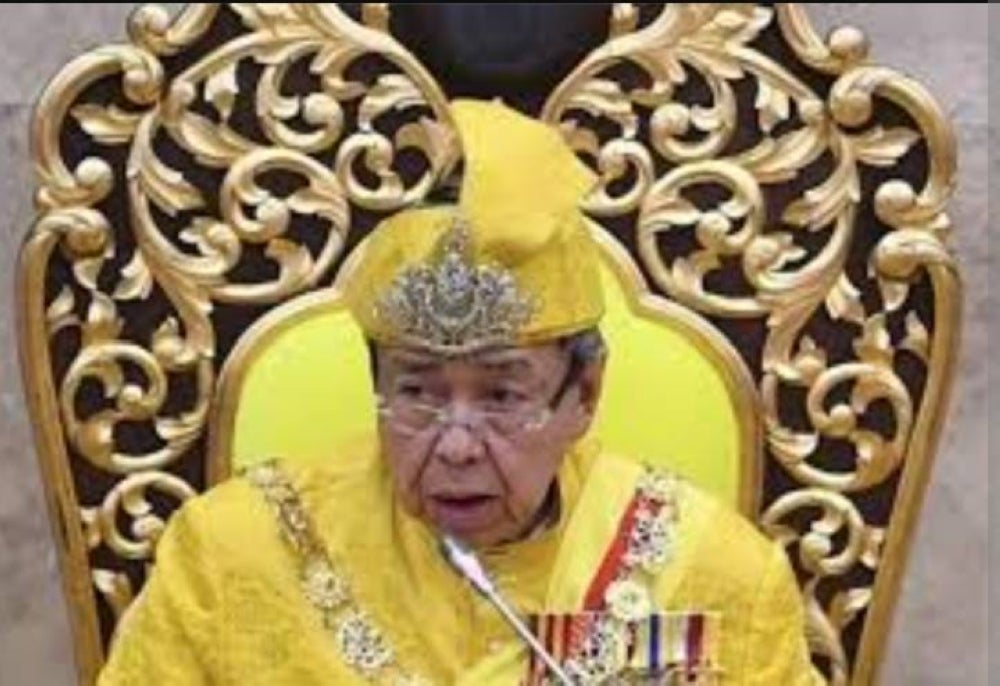Selangor Sultan warns politicians against engaging in racial and religion based politics

SHAH ALAM - The Sultan of Selangor, Sultan Sharafuddin Idris Shah has called on politicians to not use religion or racial sentiments in their efforts to gain influence and power.
In a statement, Sultan Sharafuddin said the nation will regress in all aspects of life if political leaders tend to foster racial polarisation and inflame the feelings of the people in the name of race and religion.
"As the chairman of the National Council of Islamic Religious Affairs (MKI), I feel called to advise politicians to steer away from racial and religion-based politics and to instead foster unity and harmony.
"Politicians are people who have a large following and influence, and if the wrong message is given, it can result in division and discord among the people.
"If the people are influenced by the incitement of some leaders who promote racial and religious politics, this will potentially trigger feelings of suspicion, conflict, discord, and division, which could threaten national security," Sultan Sharafuddin said.
The Sultan of Selangor said politicians should sow the seeds of unity among the people, as every race plays an important role in the cultural and economic landscape of the nation.
Any differences between the races, whether culturally or in terms of religion, should be overcome by continuous efforts to bridge the gap in order to avoid any pre-existing prejudices, he said.
"The young generation of the nation should be instilled with the spirit to tolerate and understand the culture and religions of various races practiced in our country," Sultan Sharafuddin said.
His Majesty reminded the politicians that history has proven that disputes, racial divisions, and religious strife in the nation will result in deep hatred, which will trigger a civil war and leave the nation paralysed and destroyed.
"Is this what we want to see after the country has achieved independence for 66 years? Do we want to see the rapid economic development and the close unity among various races and religions that we have built all this time destroyed simply because of the attitude of some political leaders who only think about their own self-interests? Sultan Sharafuddin said His Majesty explained that a social contract agreement was signed between the leaders of various races in this country when the country achieved independence.
Sultan Sharafuddin explained that the social contract born to guarantee the status and rights of citizens and the rights of all races in this country is preserved by taking various considerations from various angles.
"In fact, to ensure that this social contract is implemented as agreed upon, it has been translated in the form of provisions in the Federal Constitution. Therefore, the people no longer need to be incited by any party to express dissatisfaction and prejudice against each other because the law has guaranteed each other's rights.
"But what is happening in our country is very worrying, especially in the run-up to an election. Issues involving race and religion are always played to gain support and votes. What these political leaders should do is propose various economic development plans for the benefit of the people as a whole.
"The problems faced by the people should be prioritised in every session to meet the people and convince them that political leaders are always thinking about how to overcome the problems faced by the people," Sultan Sharafuddin advised.
His majesty also raised the issue of the widespread issuance of fatwas by some political leaders lately, which he decreed to be a very dangerous trend.
"Fatwas can only be issued by the State Fatwa Committee or the Mufti after obtaining the consent of the King of each state that issues the Fatwa. In addition, the National Muzakarah Committee under the National Council of Islamic Religious Affairs (MKI) is also responsible for issuing legal opinions after discussions with muftis from each state are held and after obtaining approval from the Council of Rulers.
"After that, a legal opinion is raised for the consideration of each state Fatwa committee and will receive the consent of the King for a state to issue a fatwa. A fatwa issued is not solely based on the opinion of an individual mufti; it is made by consensus of the majority of members either in the MKI, the National Muzakarah Committee, or the State Fatwa Committees, consisting of religious scholars and those who are experts in their respective fields," Sultan Sharafuddin said.
The Sultan of Selangor said this is to ensure that the issued fatwas are accurate and bring good to Muslims.
His Majesty said that if a fatwa was allowed to be issued by politicians and political leaders, it would definitely cause strife and division, which would ultimately destroy the nation.
"Therefore I would like to remind and urge the people, especially the political leaders, to immediately stop this irresponsible act of issuing fatwas in order to preserve the unity of the people in this country. I am not willing to see the people divided by the actions of some irresponsible political leaders.
"This does not mean I side with any political party; I chose to release this statement after the state elections and by-elections so that my intentions are not misconstrued as me being partial to any party," Sultan Sharafuddin said.
The Selangor ruler also called on the police to take pro-active action in investigating and taking action against those who raised sensitive issues involving religion, race, and the position of the Malay Rulers in order to serve as a lesson to those who wish to do the same in the future.
His majesty went on to advise all political leaders, especially senior political leaders, to avoid dividing the people in this country and instead take the approach of nurturing the spirit of unity among all races of different religions to ensure the well-being of the country.
Download Sinar Daily application.Click Here!















